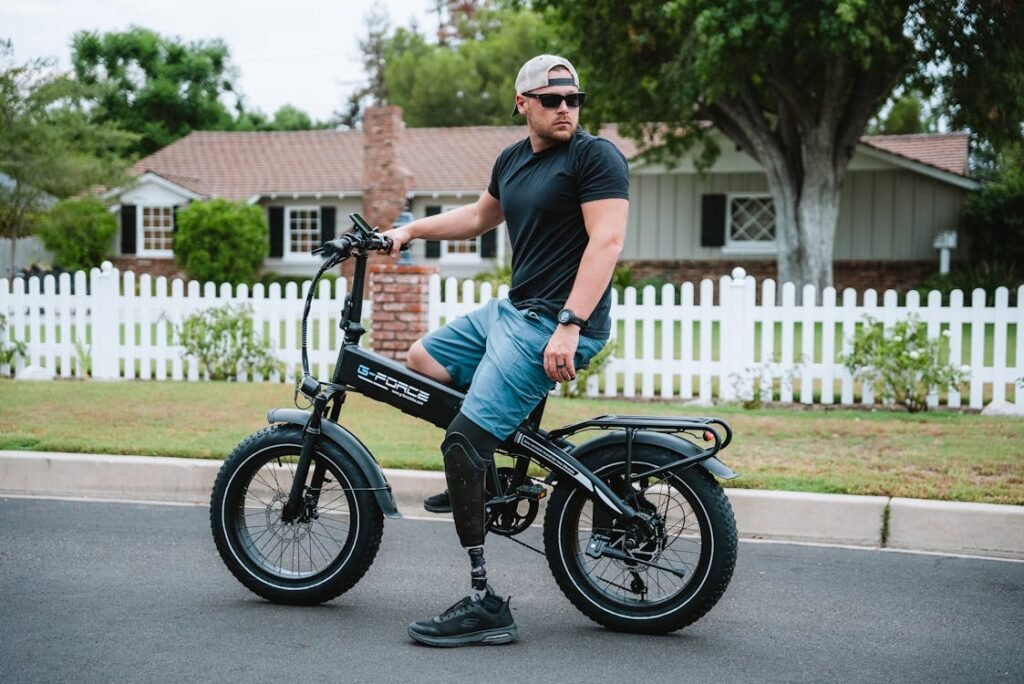Losing a limb is a life-changing experience that affects the body and mind in many ways. The journey to recovery is not just about getting used to a prosthetic or regaining mobility; it is also about taking care of mental health and nutrition. When all three areas—mind, body, and nutrition—are in balance, the process of healing and adapting becomes smoother and more effective.
Many amputees focus on physical recovery but overlook the impact of mental health and diet. Anxiety, depression, or frustration can slow down progress, making it harder to stay motivated and engaged in rehabilitation. At the same time, poor nutrition can lead to fatigue, slow wound healing, and reduced strength. The connection between these three factors is powerful, and understanding it can make a significant difference in how well an amputee recovers and thrives.
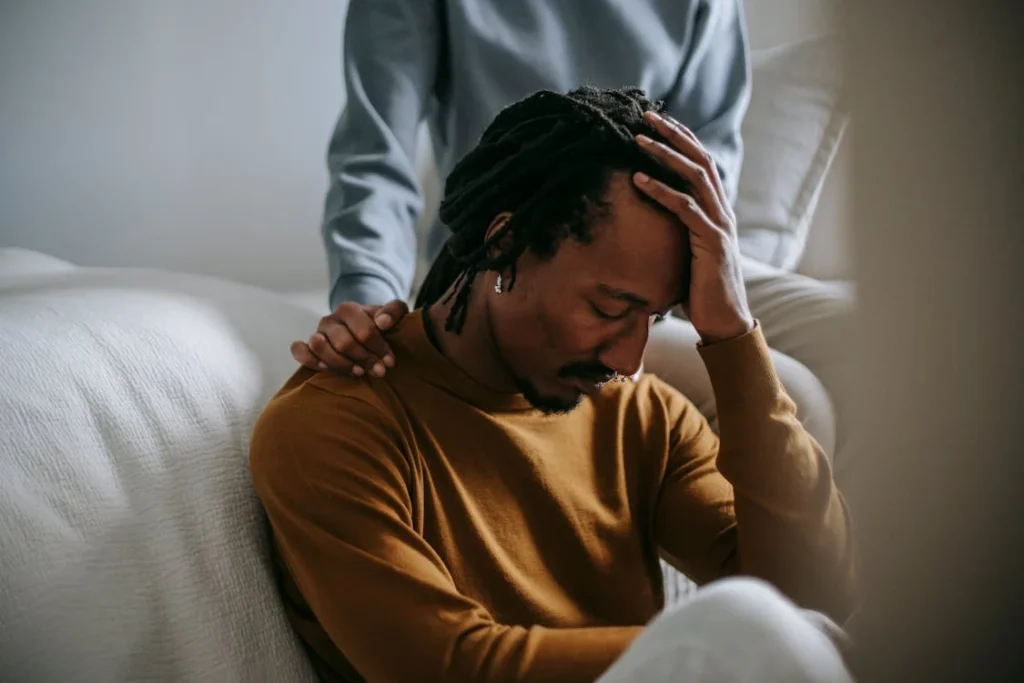
Understanding the Emotional Impact of Limb Loss
Losing a limb is not just a physical change; it is an emotional and psychological journey that affects every aspect of life. Many amputees go through a range of emotions, from grief and frustration to hope and determination.
While physical healing is often the main focus, mental health plays a crucial role in how well and how quickly a person adapts to their new reality.
Coping with Emotional Challenges
The period following an amputation can be overwhelming. Feelings of sadness, anger, and even denial are common as the body adjusts to the loss.
Many amputees struggle with self-image and confidence, worrying about how they will navigate daily life and how others will perceive them. These emotions are completely natural, but if left unaddressed, they can slow down the recovery process.
One of the biggest challenges is the fear of dependence. Many people worry about losing their independence and needing help with tasks they once did easily.
This fear can lead to frustration and even withdrawal from social activities. Accepting support from family, friends, and professionals is essential in overcoming these worries and rebuilding confidence.
Another common emotional struggle is phantom limb pain, where the brain still registers sensations from the missing limb. This can be uncomfortable and even distressing, adding to the emotional toll of recovery.
Managing stress and staying mentally engaged in recovery exercises can help reduce the intensity of these sensations over time.
The Role of Mental Health in Physical Recovery
Mental health directly affects how well the body heals. High levels of stress and anxiety can slow down recovery by increasing inflammation and weakening the immune system.
When an amputee is constantly stressed or overwhelmed, their body produces higher levels of cortisol, a hormone that can interfere with wound healing and muscle rebuilding.
A positive mindset, on the other hand, can improve physical recovery. When a person is motivated and mentally engaged in their rehabilitation, they are more likely to stick to their physical therapy routine, practice using their prosthetic, and stay active.
Hope and determination make a significant difference in how quickly strength and mobility return.
Connecting with a mental health professional can be beneficial for amputees struggling with emotional adjustments. Therapy, counseling, or even peer support groups can help in processing emotions and finding healthy ways to stay motivated.
Engaging in activities that bring joy, such as hobbies, music, or social events, can also help shift focus away from limitations and toward possibilities.

The Role of Nutrition in Healing and Mental Well-Being
Food is more than just fuel for the body—it plays a direct role in both physical recovery and mental health. After an amputation, the body works hard to heal wounds, rebuild muscles, and adjust to new movement patterns.
Without the right nutrients, this process can slow down, leading to fatigue, weakness, and even complications. At the same time, what a person eats also affects their mood, energy levels, and ability to cope with stress.
How Nutrition Supports Physical Recovery
Proper nutrition is essential for wound healing, muscle growth, and overall strength. After an amputation, the body needs more protein to repair tissues and build new muscle in the remaining limbs.
Foods like eggs, fish, lean meats, beans, and dairy provide the necessary protein for faster healing. Without enough protein, wounds may take longer to close, and muscle loss can occur, making it harder to regain mobility.
Vitamins and minerals also play a critical role in recovery. Vitamin C helps the body produce collagen, which is essential for skin and tissue repair. It is found in citrus fruits, bell peppers, and strawberries.
Zinc supports the immune system and helps wounds heal faster, and it is commonly found in nuts, seeds, and whole grains. Iron is another important nutrient, as it prevents fatigue by ensuring that oxygen is properly transported through the blood.
Leafy greens, red meat, and legumes are rich in iron and help keep energy levels stable.
Hydration is often overlooked but is just as important as food. Water helps transport nutrients throughout the body, flush out toxins, and prevent muscle cramps.
Dehydration can slow down circulation and make recovery feel harder than it needs to be. Drinking enough water, herbal teas, or electrolyte-rich drinks can make a noticeable difference in how the body functions during rehabilitation.
The Link Between Food and Mental Health
The brain and body are deeply connected, and what a person eats can influence their mood, stress levels, and emotional resilience. Certain foods promote brain health and can help reduce feelings of anxiety or depression.
Omega-3 fatty acids, found in fish, flaxseeds, and walnuts, are known to improve brain function and stabilize mood. Magnesium, found in nuts, whole grains, and dark chocolate, helps relax the nervous system and reduce stress.
Processed foods, sugary snacks, and high-caffeine drinks can have the opposite effect. These foods can cause energy crashes, increase inflammation, and worsen feelings of fatigue or irritability. A balanced diet with whole foods keeps the body and mind functioning at their best.
Eating regularly is also important. Skipping meals can lead to low blood sugar levels, which can cause dizziness, mood swings, and lack of focus.
For amputees going through rehabilitation, maintaining steady energy levels is crucial for staying motivated and engaged in recovery exercises.
Developing Healthy Eating Habits for Long-Term Strength
A well-balanced diet is not just important in the early stages of recovery but should be maintained for life. Amputees who continue to eat nutritious meals find that they have better energy, improved mobility, and fewer health complications.
Preparing simple, home-cooked meals and focusing on whole foods can make a significant difference in overall well-being.
Making small, sustainable changes to eating habits is often more effective than following strict diets. Starting with one or two changes—such as drinking more water, adding a serving of vegetables to meals, or reducing processed foods—can lead to long-term improvements.
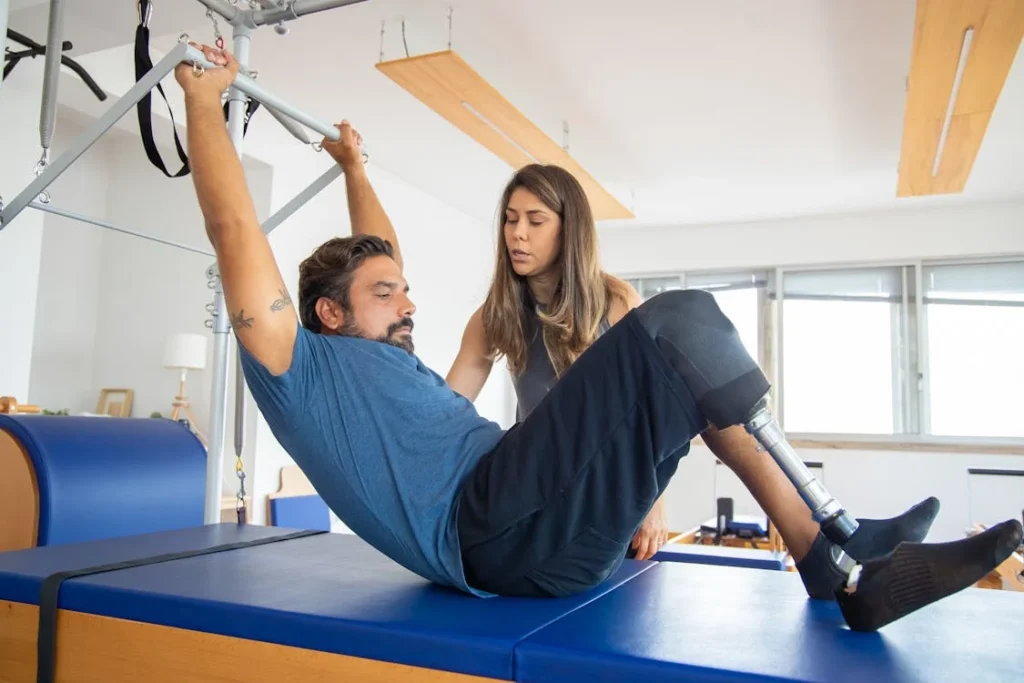
The Connection Between Physical Activity and Mental Resilience
Physical recovery after an amputation is not just about regaining strength—it is also about building confidence, independence, and emotional stability.
Movement has a direct impact on mental health, as regular physical activity releases endorphins, the body’s natural mood boosters. For amputees, staying active can improve self-esteem, reduce stress, and provide a sense of control over their bodies.
How Movement Supports Emotional Well-Being
Exercise is one of the most effective ways to manage anxiety and depression. After an amputation, it is common to experience feelings of uncertainty or frustration, especially when simple tasks require more effort than before.
Physical activity helps release built-up tension, shift focus away from negative thoughts, and create a sense of achievement. Even small movements, such as stretching or gentle walking, can improve mood and provide a sense of progress.
The act of exercising also reinforces self-reliance. Many amputees worry about being dependent on others, but each successful movement, no matter how small, is a step toward greater independence.
Whether it’s standing for longer periods, walking short distances, or mastering a new movement with a prosthetic, every bit of progress strengthens confidence.
Choosing the Right Exercises for Recovery
Not all exercises are suitable for every amputee, so it’s important to find movements that feel comfortable and safe. Gentle stretching is a great place to start, as it helps reduce stiffness, improve circulation, and keep the muscles flexible.
Yoga and seated exercises can also be beneficial, especially for those who are adjusting to a new prosthetic.
Strength training is another important part of recovery. The remaining limbs and core muscles often take on extra work to compensate for the missing limb, which can lead to muscle imbalances or strain.
Targeted exercises, guided by a physical therapist or trainer, help build strength in a controlled and safe manner.
Cardiovascular exercises such as swimming, cycling, or walking help improve endurance and keep the heart healthy.
Many amputees worry about balance or mobility during cardio workouts, but using handrails, assistive devices, or adaptive equipment can make movement easier. The key is to start with what feels manageable and gradually build up strength and stamina over time.
Overcoming Barriers to Physical Activity
Many amputees face emotional or physical barriers that make it difficult to stay active. Fear of falling, discomfort with the prosthetic, or frustration over physical limitations can prevent people from engaging in exercise.
The best way to overcome these barriers is by setting small, realistic goals and focusing on gradual progress rather than perfection.
Support from physical therapists, prosthetists, and fitness professionals can provide guidance on safe exercises and proper technique. Having a structured plan helps reduce uncertainty and makes it easier to stay committed.
Social support also plays a major role in staying active. Exercising with a friend, joining an adaptive sports program, or participating in amputee support groups can make physical activity feel less intimidating and more enjoyable.
Sharing progress and challenges with others who understand the experience creates motivation and encouragement.
Finding Joy in Movement
Exercise should not feel like a burden. Finding activities that bring enjoyment makes it easier to stay consistent. Some amputees enjoy dancing, others prefer swimming, and some find peace in simple daily walks.
The key is to choose movements that feel good and align with personal interests.
Physical recovery is not just about restoring function; it is about reclaiming the ability to move freely and confidently. By staying active, amputees can improve their overall health while also strengthening their mental resilience.
A combination of regular exercise, mental well-being, and proper nutrition creates the strongest foundation for long-term recovery and independence.
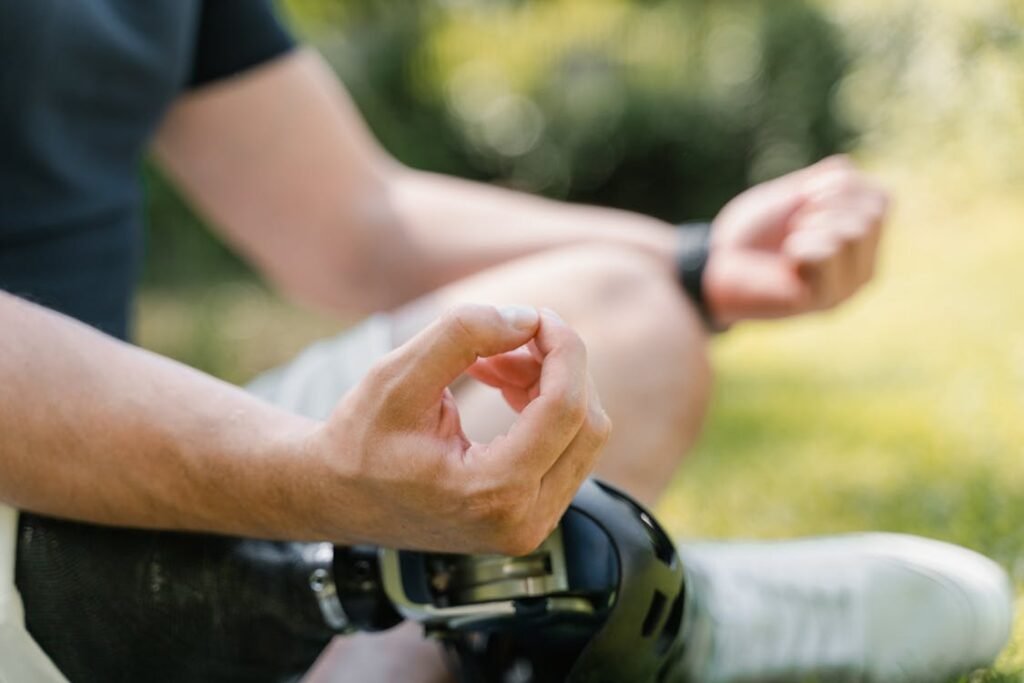
Building a Holistic Recovery Plan for Long-Term Well-Being
Recovery after an amputation is not just about getting back on your feet; it’s about creating a lifestyle that supports long-term health, mobility, and emotional strength.
A well-rounded recovery plan includes mental health support, proper nutrition, and consistent physical activity. When these elements work together, they provide a solid foundation for a fulfilling and independent life.
Creating a Daily Routine That Supports Healing
One of the most effective ways to stay on track with recovery is to establish a structured daily routine. Having set times for meals, exercise, therapy, and relaxation creates consistency, making it easier to stay committed to personal health goals.
Routines also provide a sense of stability, which can be particularly important after a major life change like limb loss.
Morning stretching or mobility exercises can set a positive tone for the day, reducing stiffness and improving circulation. Nutritious meals spread throughout the day ensure that the body receives the necessary fuel for healing.
Dedicated relaxation time, whether through meditation, listening to music, or engaging in a hobby, helps manage stress and improves mental clarity.
The Role of Sleep in Recovery
Quality sleep is a critical yet often overlooked part of the healing process. The body repairs itself during sleep, making it essential for tissue recovery, energy restoration, and emotional well-being.
Amputees may experience sleep disturbances due to phantom limb pain, discomfort, or stress. Establishing a bedtime routine, such as reducing screen time before bed, practicing deep breathing, or using a comfortable mattress and pillows, can improve sleep quality.
Nutrition also plays a role in better sleep. Avoiding caffeine and heavy meals before bedtime can prevent restlessness. Herbal teas, warm milk, or magnesium-rich foods like almonds can promote relaxation and better sleep patterns.
Maintaining Motivation and a Positive Outlook
Staying motivated during recovery can be challenging, especially when progress feels slow. Setting realistic goals and celebrating small achievements can help maintain a sense of accomplishment.
Whether it’s walking a few extra steps, trying a new healthy recipe, or completing a full workout session, every milestone matters.
Surrounding oneself with supportive people is also essential. Connecting with family, friends, support groups, or online communities of amputees can provide encouragement and shared experiences.
Hearing the success stories of others who have overcome similar challenges can serve as a powerful motivator.
Focusing on long-term possibilities rather than limitations creates a positive mindset. Recovery is a journey, and while setbacks may happen, each step forward builds resilience and confidence.
By prioritizing mental health, proper nutrition, and regular physical activity, amputees can create a sustainable recovery plan that leads to a strong, independent, and fulfilling life.
At Robobionics, we believe in a holistic approach to prosthetic adaptation and well-being. If you are looking for expert guidance, rehabilitation programs, or advanced prosthetic solutions, reach out to us today. Your journey to a healthier and more active life starts now.
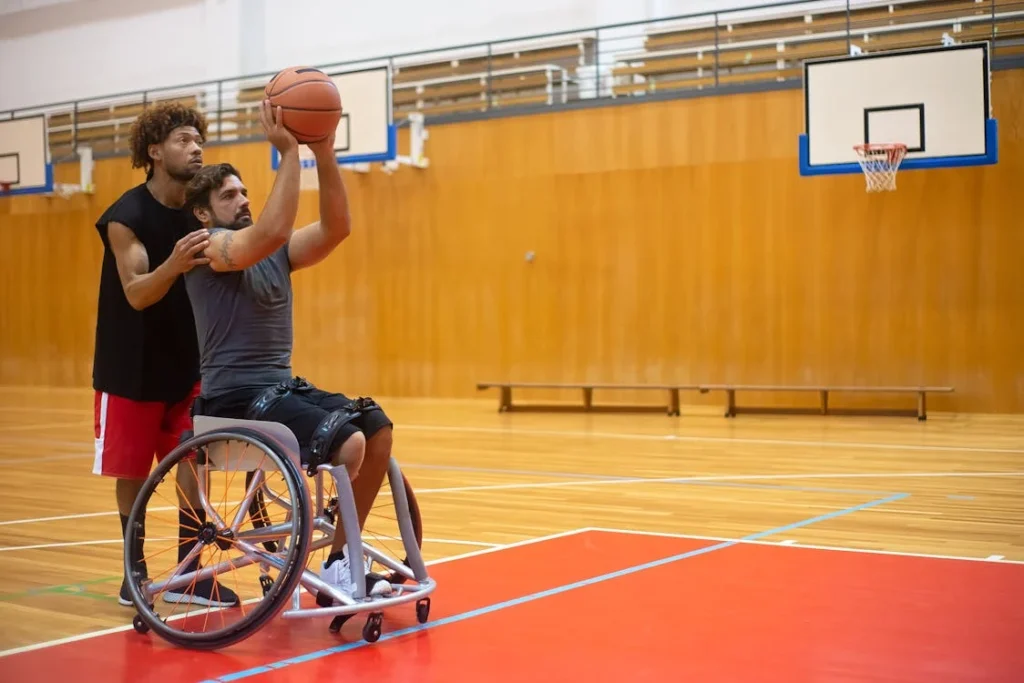
The Impact of Social Support on Recovery and Mental Well-Being
Recovery from limb loss is not just a personal journey—it is also shaped by the people around you. Having a strong support system can make a significant difference in both physical rehabilitation and mental well-being.
The encouragement of family, friends, therapists, and even other amputees can provide motivation, emotional stability, and practical assistance. Feeling connected and supported reduces feelings of isolation and makes the recovery process less overwhelming.
The Role of Family and Friends in Recovery
Family members and close friends play a crucial role in helping an amputee adjust to their new way of life. Their support can come in many forms, from assisting with daily tasks to providing emotional reassurance during difficult moments.
Simple gestures like listening without judgment, offering encouragement during physical therapy, or even accompanying an amputee on walks can boost confidence and motivation.
One of the challenges that amputees face is the fear of being a burden to loved ones. Many struggle with asking for help, even when they need it.
Open communication is essential in these situations. Setting clear expectations about the kind of support needed—whether it’s physical assistance, emotional encouragement, or just someone to talk to—can create a healthier and more balanced relationship.
The Power of Connecting with Other Amputees
While the support of family and friends is valuable, connecting with other amputees can provide a different kind of understanding. Speaking to someone who has gone through a similar experience can be incredibly reassuring.
They can offer firsthand advice on adapting to prosthetics, overcoming challenges, and finding confidence again.
Support groups, whether in-person or online, give amputees a safe space to share their struggles and victories. Many people find comfort in knowing that they are not alone and that others have successfully navigated the same difficulties they are facing.
These communities also provide a source of inspiration, as seeing others thrive can be a powerful motivator.
The Influence of Healthcare Professionals
Doctors, prosthetists, physical therapists, and mental health counselors all play a crucial role in the recovery journey. A strong relationship with healthcare providers ensures that an amputee receives proper medical care, prosthetic adjustments, and rehabilitation support.
Having regular check-ins with these professionals allows for continuous progress and prevents complications from developing.
Mental health professionals, in particular, can help amputees work through feelings of grief, anxiety, or depression that may arise.
Therapy and counseling provide coping strategies to handle emotional struggles, while cognitive behavioral therapy (CBT) can help amputees reframe negative thoughts and focus on recovery.
The Importance of Being Your Own Advocate
While support from others is important, self-advocacy is just as crucial. Learning to express needs, ask questions, and seek out resources can make the recovery process smoother.
Amputees who actively participate in their rehabilitation, educate themselves on prosthetic options, and engage in adaptive activities often experience a greater sense of control and empowerment.
Building a network of supportive individuals creates a safety net that makes setbacks easier to overcome. Recovery is not a journey that should be faced alone, and having people to lean on can make all the difference.
At Robobionics, we understand that healing goes beyond prosthetics—it requires emotional support, motivation, and confidence. If you are looking for resources, guidance, or a community that understands your journey, reach out to us today.
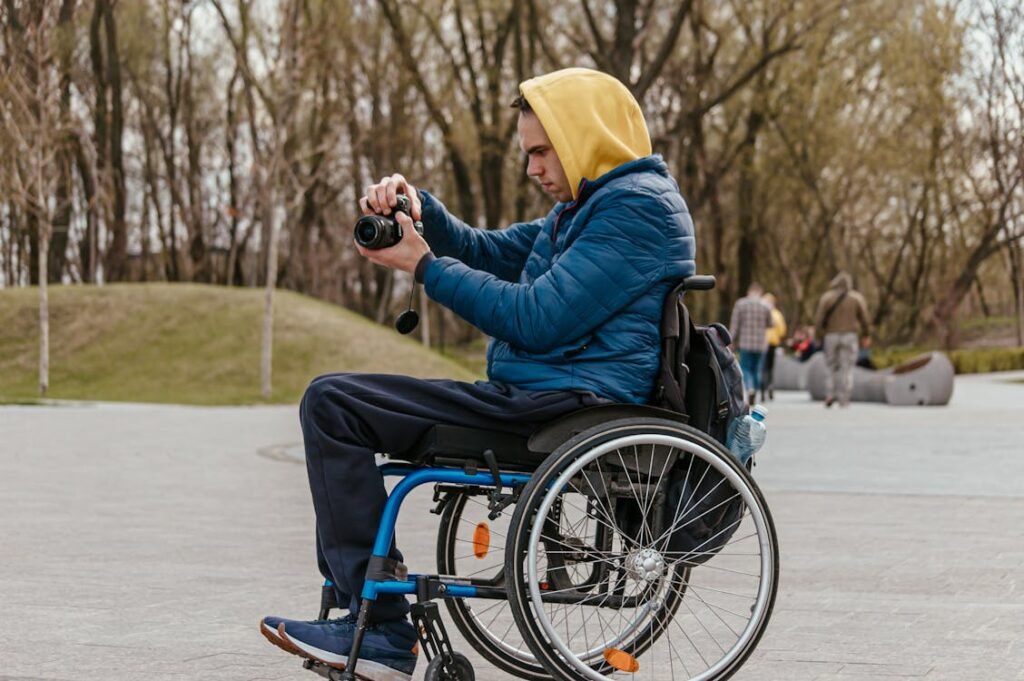
The Role of Adaptive Hobbies and Recreational Activities in Recovery
Recovery after an amputation is not just about regaining mobility—it is also about rediscovering joy, purpose, and engagement in daily life.
While physical therapy and nutrition are critical to healing, incorporating adaptive hobbies and recreational activities can improve both mental and physical well-being.
Finding enjoyable activities provides a sense of accomplishment, boosts self-esteem, and helps amputees feel more in control of their lives.
How Hobbies Improve Mental and Emotional Health
Engaging in hobbies reduces stress, improves mood, and creates a sense of normalcy. After an amputation, many individuals experience frustration, loneliness, or a loss of identity.
Adaptive hobbies help shift focus away from limitations and toward personal interests and passions. Whether it’s art, music, sports, or crafting, having an enjoyable activity provides a much-needed mental escape.
Creative outlets such as painting, playing a musical instrument, or writing can be therapeutic. They allow amputees to express emotions that may be difficult to verbalize.
These activities also help improve coordination, dexterity, and concentration, which can be beneficial for those adjusting to a prosthetic.
Gardening, woodworking, or even cooking can also provide a sense of control and achievement. Learning new skills or refining old ones helps build confidence and resilience.
These hobbies can be adapted to suit an amputee’s specific needs, making them both accessible and fulfilling.
Adaptive Sports and Physical Activities for Confidence Building
For those who enjoy movement, adaptive sports provide a great way to stay physically active while also fostering social connections. Many amputees believe they will no longer be able to participate in sports, but with the right modifications, a wide range of activities is possible.
Sports such as swimming, cycling, rock climbing, and martial arts have been adapted to accommodate different types of limb loss.
Swimming is one of the best forms of exercise for amputees, as water reduces strain on the joints and allows for greater freedom of movement.
Some amputees choose to swim without a prosthetic, while others use specialized waterproof prosthetics designed for aquatic activities.
Cycling is another excellent option, as it allows for cardiovascular fitness without putting excessive pressure on the residual limb. Hand cycles are available for those with upper limb loss, providing a modified experience that offers both exercise and recreation.
Martial arts and self-defense training can help amputees rebuild confidence and improve coordination. Many programs offer adaptive techniques that focus on balance, reflexes, and strength.
These activities also empower amputees by providing practical skills that increase their sense of independence.
Social Engagement Through Group Activities
Beyond the physical benefits, engaging in hobbies and recreational activities helps amputees connect with others. Group activities, whether it’s a book club, a dance class, or an adaptive sports team, create opportunities for social interaction.
Feeling included in a community reduces loneliness and provides a support system of people who share similar experiences.
Volunteering is another powerful way to stay engaged. Many amputees find purpose in helping others, whether it’s mentoring new amputees, sharing their story, or participating in disability advocacy.
Giving back not only helps the community but also strengthens self-worth and motivation.
Embracing a Lifestyle of Exploration
Recovery is not just about returning to what was lost; it is also about discovering new possibilities. Exploring different hobbies, trying new activities, and stepping outside of comfort zones can redefine what is possible after an amputation.
Every new skill learned and every activity enjoyed contributes to a fulfilling, enriched life.
At Robobionics, we believe in more than just providing prosthetic solutions—we support holistic well-being. If you are looking for ways to enhance your mobility, explore adaptive activities, or connect with a community that understands your journey, reach out to us today.
Conclusion
Recovery after an amputation is about more than just physical healing—it is a journey that involves mental strength, proper nutrition, and an active lifestyle. By addressing emotional well-being, eating the right foods, and staying engaged in physical activities, amputees can build a strong foundation for long-term health and independence.
The path to recovery may come with challenges, but small, consistent efforts lead to progress. Surrounding oneself with a supportive community, exploring adaptive hobbies, and setting realistic goals can make the process more fulfilling. Mental resilience, combined with proper care for the body, creates the best conditions for a successful and confident return to daily life.
At Robobionics, we believe in empowering amputees with innovative prosthetic solutions and holistic support. Whether you are looking for rehabilitation resources, expert guidance, or a community that understands your journey, we are here to help. Your recovery is not just about adapting—it’s about thriving. Reach out to us today and take the next step toward a stronger, healthier, and more active life.



